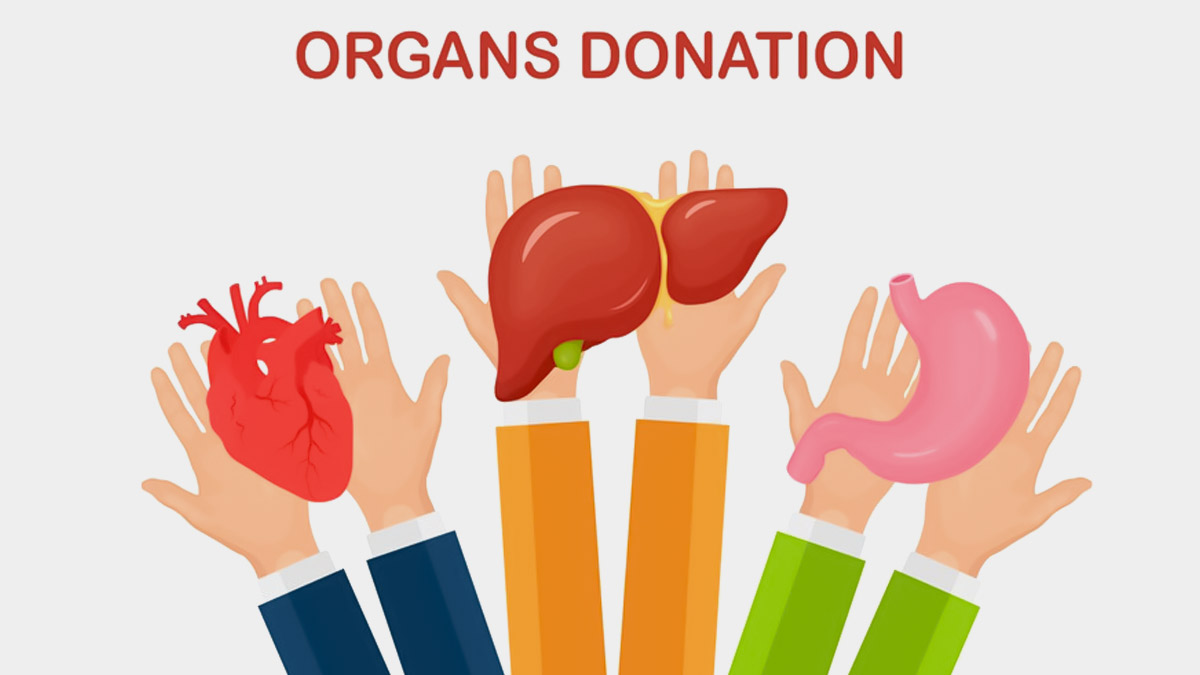
Organ donation holds the power to bestow life upon individuals in dire need of organs, embodying a selfless act of compassion. Governed by specific regulations and overseen by medical and governmental bodies, the practice ensures a systematic and ethical approach to this life-saving endeavour. However, numerous misconceptions have clouded the understanding of organ donation. In a bid to clarify these myths, we spoke to Dr Venkatesh Billakanti (BV Rao), Senior Consultant Physician, Yashoda Hospital, Hyderabad.
Table of Content:-
Myth 1: Organ Donors Receive Inadequate Medical Care To Save Their Life
Myth 2: Organ Donation Contradicts Religious and Cultural Beliefs
Myth 3: Wealthy or Famous Individuals Receive Priority for Organ Transplant
Myth 4: Organ Donation Disfigures the Body, Rendering Open-Casket Funerals Impossible
Myth 6: Age or Health History Disqualifies You from Being a Donor
Myth 7: My Family will have to Pay for the Costs of Organ Donation
Why Demystify Organ Donation Myths?
As per the Directorate General of Health Services, Ministry of Health and Family Welfare, Government of India, the deficiency of organs in India poses a significant hurdle, displaying a notable imbalance between the volume of patients seeking transplants and the existing organ supply.
For example, it indicated that on an annual basis, roughly 1,80,000 individuals encounter renal failure; however, the conducted renal transplants remain restricted, numbering a mere 6,000. Liver failure or liver cancer claims approximately 2,00,000 lives each year, with nearly 10-15% of these cases having the potential to be averted through timely liver transplants.
The country's organ donation program is influenced by various factors, such as poor awareness and attitude about organ donation, religious convictions, and insufficient availability of transplantation facilities. Thus, by demystifying organ donation myths, we can raise awareness and promote donation.
Also Read: World Organ Donation Day 2023: QnA With A Doctor On Organ Donation Scenario In India
Myths and Facts About Organ Donation
Doctor debunks organ donation myths.
Myth 1: Organ Donors Receive Inadequate Medical Care To Save Their Life

Fact: Dr Billakanti said, "Contrary to this belief, the reality is that potential organ donors undergo meticulous evaluation, adhering to strict criteria before they can be deemed suitable donors," He added that rigorous tests are administered to ensure compatibility and health. "Any minor medical concerns disqualify an individual from becoming a donor, as their safety and well-being remain paramount throughout the process," he suggested.
Myth 2: Organ Donation Contradicts Religious and Cultural Beliefs
Fact: "Many major religions and cultural practices endorse organ donation as an act of compassion and saving lives. While there might be variations within specific denominations, seeking guidance from religious or cultural leaders can provide clarity. The organ donation process often accommodates these beliefs, demonstrating respect for diverse values," said the doctor.
Myth 3: Wealthy or Famous Individuals Receive Priority for Organ Transplant
Fact: Dr Billakanti said that organ allocation hinges on medical urgency, compatibility, and established protocols, entirely dissociated from factors like affluence or prominence. "The equitable distribution system, standardised nationally, guarantees fairness by addressing medical requirements and waitlists, thus nullifying the role of social standing or financial means," he added.
Myth 4: Organ Donation Disfigures the Body, Rendering Open-Casket Funerals Impossible

Fact: "Organ donation procedures are conducted with the utmost reverence for the donor's body. Post-organ recovery, the body is meticulously reconstructed, ensuring the possibility of open-casket funerals. The donor's appearance remains largely unaltered by the donation process," said Dr Billakanti.
Myth 5: Organ Donation Involves Buying and Selling Organs
Fact: "The global stance vehemently opposes organ trafficking and transactions. Ethical organ donation transpires under the oversight of official procurement organisations, authorised medical professionals, and transplant centres," said the doctor. "A comprehensive regulatory framework ensures the fairness, transparency, and safeguarding of both donors and recipients," he added.
Also Read: Breaking Barriers: Overcoming Cultural And Religious Misconceptions About Organ Donation
Myth 6: Age or Health History Disqualifies You from Being a Donor
Fact: "Age alone is not a decisive factor in determining organ donation eligibility. Medical experts gauge the suitability of organs on a case-by-case basis, ensuring health and compatibility. Even individuals of advanced age can contribute if they are in sound health," suggested Dr Billakanti.
Myth 7: My Family will have to Pay for the Costs of Organ Donation
Fact: "Contrary to this belief, the financial responsibility for organ donation, including the cost of organ retrieval, typically falls on the recipient or their insurance. The donor's family is exempt from bearing any expenses related to the organ donation process," explained Dr Billakanti.
Conclusion
By discerning fact from fiction, we pave the way for a clearer comprehension of organ donation. This empowers individuals to make informed decisions, potentially saving countless lives in the process. A renewed understanding of the ethical and regulated nature of organ donation ensures that this life-affirming practice continues to thrive, supported by accurate information and a collective commitment to saving lives.
[Disclaimer: This article is for informational purposes only. Consult your healthcare provider to get a thorough diagnosis and treatment as per your health needs.]
Image Credits: freepik
Also watch this video
How we keep this article up to date:
We work with experts and keep a close eye on the latest in health and wellness. Whenever there is a new research or helpful information, we update our articles with accurate and useful advice.
Current Version